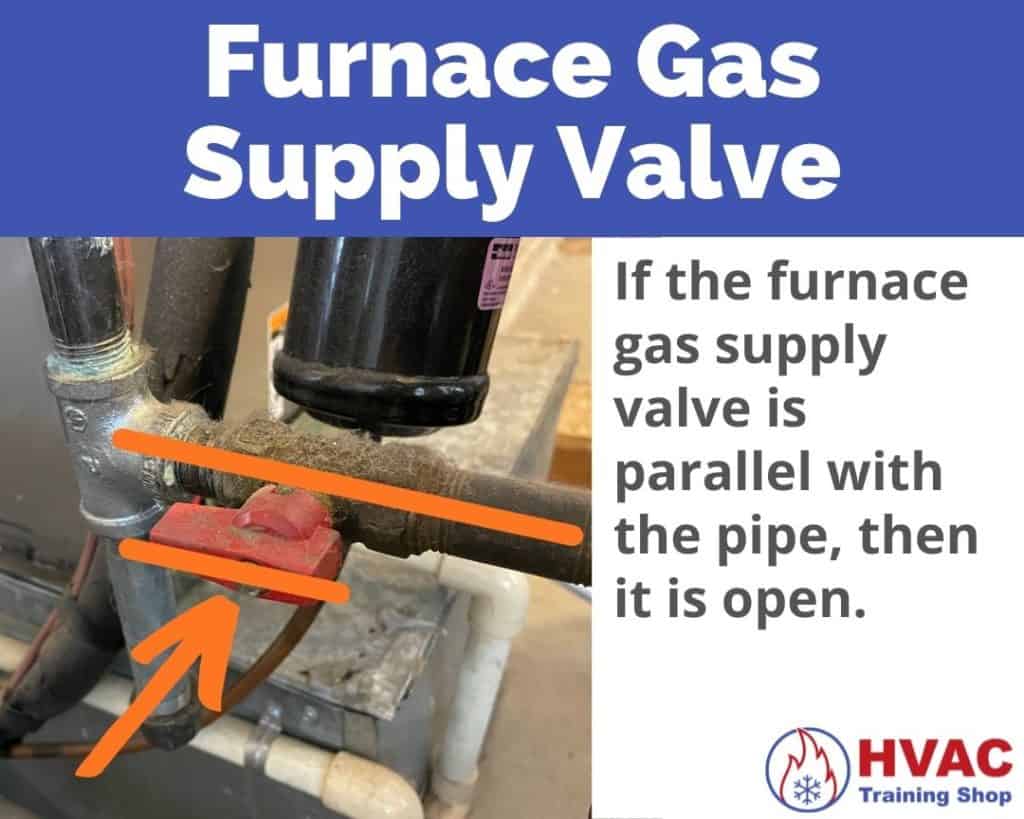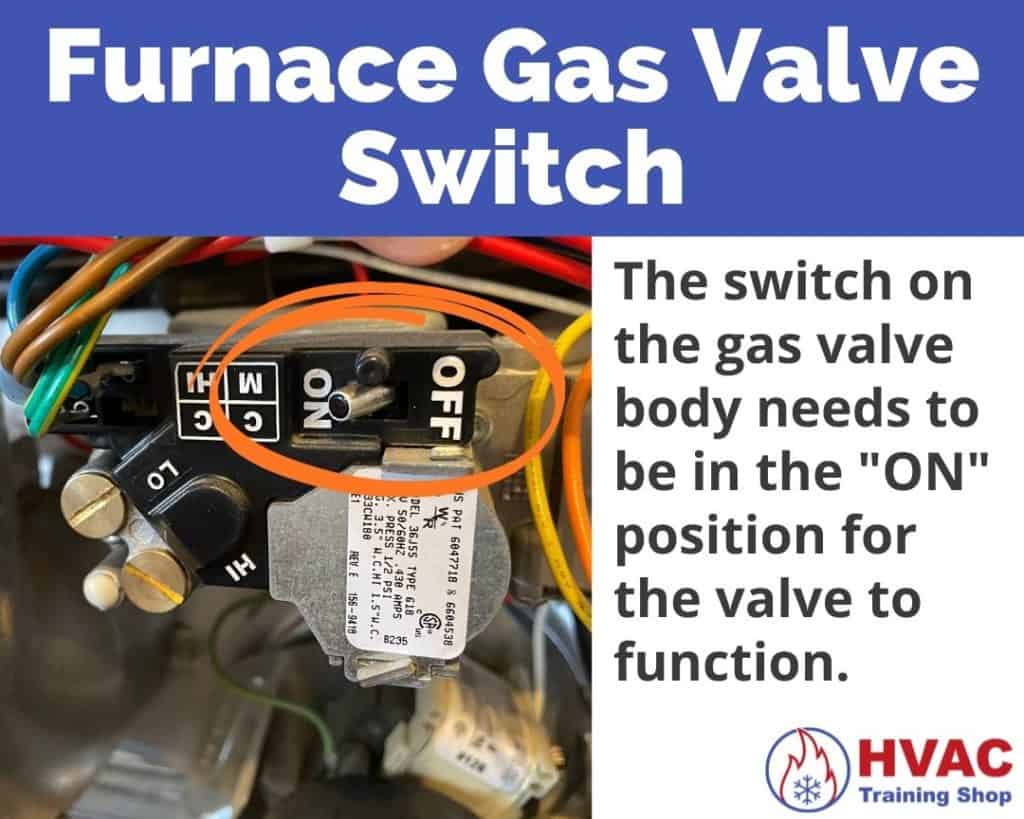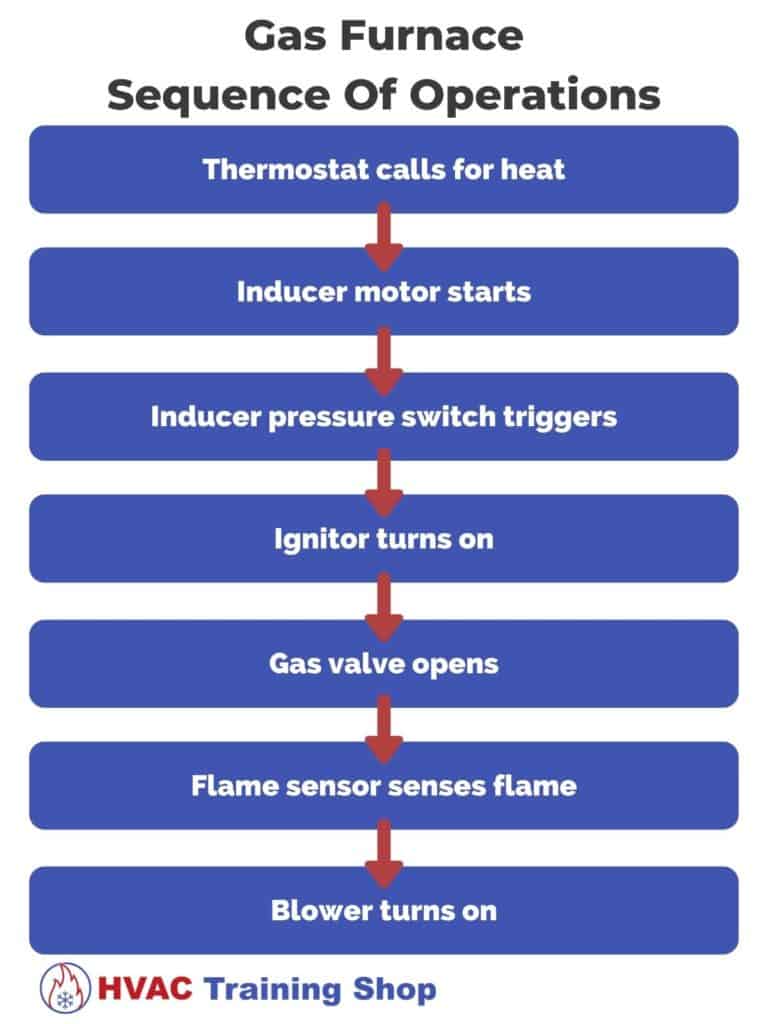If your furnace is giving you heating issues, the gas valve may be the culprit.
The gas valve manifold inside the furnace opens and closes to allow your furnace to burn gas to create heat.
Although most times there are other things that you should check before you troubleshoot the gas valve.
First things first- check that the gas supply to your furnace is open.

Another thing to check is the switch on the gas valve body inside the furnace.
Most gas valves in furnaces have a manual shutoff dial or switch. This shutoff allows you to disable the gas valve inside the furnace.

The shutoff switch on the furnace gas valve needs to be in the “ON” or “OPEN” position for the valve to function.
Ok, now that we got that out of the way… if your furnace is still having gas supply issues then read further.
Furnace gas valve troubleshooting
To troubleshoot a furnace gas valve, the first thing you need to check is the furnace’s sequence of operations.
 The gas valve opens right after the ignitor activates. So if you don’t see your ignitor turning on, then your gas valve won’t open either.
The gas valve opens right after the ignitor activates. So if you don’t see your ignitor turning on, then your gas valve won’t open either.
If your ignitor isn’t even turning on, then it’s likely something else in your furnace that’s the problem.
If your ignitor IS turning on, but your gas valve isn’t opening, then it’s time to start troubleshooting. Follow these steps:
- Turn off power to your furnace.
- Remove the two wires from their terminals on the gas valve.
- Stick your multimeter probes into the wires. Turn on your multimeter to AC Voltage mode (usually shown as V~).
- Turn power on to your furnace.
- Observe your furnace. After the ignitor turns on, then you should read around 24 or 120 volts on your multimeter (it could be 24 or 120 volts, depending on your furnace)
- If your multimeter does NOT read 24 or 120 volts, then it is probably an issue with your control board.
- If your multimeter reads 24 or 120 volts AC, then your control board is sending the correct voltage to your gas valve.
If your control board is sending the correct voltage to the gas valve, then it’s time to check further by testing the gas valve itself.
How to test a furnace gas valve
There are a bunch of different things to test on a furnace gas valve.
The first and easiest thing to do is to check the solenoid coil on the gas valve.
Turn your multimeter on. Select the resistance/ohms mode (usually shown as Ω).
Hook up your multimeter’s probes to the terminals on the gas valve. If the reading is OL, then the gas valve is bad.
Another way to test a gas valve is to hit it with a hammer. No, really- by hitting your gas valve with a hammer, it can become unstuck and open up.
The trick is to hit it at the same time that your furnace’s control board sends voltage to it.
So give it 3-4 seconds after you see your ignitor light up before you hit your gas valve.
You don’t need to hit your gas valve very hard. A few taps with a hammer or wrench will be sufficient.
If your gas valve opens up after hitting it, then you’ll get heating for a while.
However, the valve is still bad. Once the valve closes again, it will take another tap of the hammer to get it to open up again. The valve is bad and needs to be replaced.
Replacing a furnace gas valve
Replacing a furnace gas valve is a tough job. In fact, in many areas, it may be illegal for you to do it yourself since it comes into contact with your municipal gas system.
If your furnace gas valve needs to be replaced, I recommend hiring an HVAC contractor to do it for you.
From https://hvactrainingshop.com/